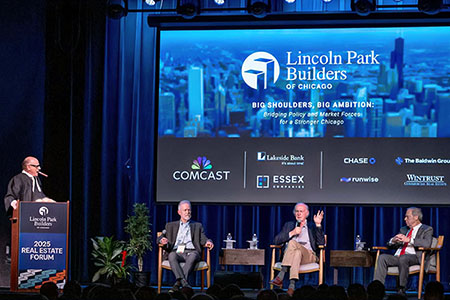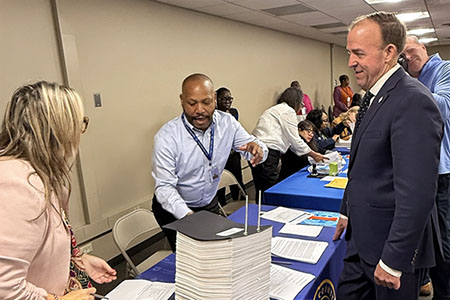With COVID-19 vaccination relatively widespread, restaurants are now permitted to have indoor dining and full occupancy, but that does not mean the challenges have ended.
Dec. 6, 2021 – It had been about a year since I spoke with Michael Muser, who in July 2020, along with Michelin-starred chef Curtis Duffy, opened Ever Restaurant, a fine-dining eatery west of the Loop. Talking with him in November 2021, Muser was happy to report they are busy – like many other restaurants – but there is a new problem. “You don’t have staff to handle the numbers that are coming at you right now,” he laments.
He is concerned that the amount of work, spread so thin, is taking a toll on his staff and himself, especially after dealing with the challenges of the pandemic like everyone else. Ever Restaurant is not alone with having difficulty finding staff. The news is awash with stories of businesses – including many service-based businesses – having difficulty finding workers. In September 2021, the Department of Labor’s Job Openings and Labor Turnover Survey (JOLTS) reported job openings in the United States in July were at a record high of 10.9 million. The JOLTS report also noted that 4.0 million workers had voluntarily left their jobs. When asked why he thought people were not applying for jobs at Ever, Muser surmised that part of the issue is that many wait staff are out of college, figuring out their careers in other fields – often creative and teaching ones – while working at restaurants. Because of the “Big Pause” during the pandemic, many took the necessary steps to get to their dream job and no longer need to work in the service industry to pay their bills. Muser is grateful for the staff that he has, saying loyalty means even more now for a small business trying to realize its dream. He also says mask compliance has not been an issue at the restaurant with staff and customers but he noted the sacrifice of staff who wear their masks for 14 hours – both in the front and in the kitchen. Getting back to the plan For other restaurants, the challenge has been to get back to the plan. Kasama, a Filipino restaurant based in Ukrainian Village, also opened in July 2020 and had spent the months leading up to their opening rethinking their plan of opening a lunch and dinner restaurant to work under the pandemic limitations. Chef/owner Tim Flores says they were more fortunate than other pre-existing restaurants who had to figure out how to pivot their operations, because Kasama had time to figure out its operating model before it opened. Originally, Flores and chef/owner Genie Kwon had expected that dinner would be where they would make the most money and help supplement their daytime bakery and lunch operations.
Lunch and the bakery were the money-makers instead of dinner. People would wait in line in the morning to get their baked goods. But now Flores and Kwon are finally able to think about the future. They just announced the opening of dinner service in late November with a tasting menu. “Our goal is always the same,” said Kwon. “We want to keep our employees employed. Create the culture that we’ve always been looking for.” They already offer health insurance to full-time staff. “We want to offer them something more and something different and new, and they’ve been with us through it all,” Kwon continued. While Flores says Kasama did not have the same issues with staffing that Ever had, he did note they are seeing prices double for food – and he does not feel they can double their prices. He says they want to remain a neighborhood restaurant and do not want to charge, for example, $16 for a breakfast sandwich.
However, not being able to find certain food items is causing issues with their tasting menu. Muser likened the tasting menu to an album, where changing a song can impact the entire album. If enough ingredients are unavailable, a new dish may have to be made, which can take two to three weeks. And changing one course means a new wine pairing. He compared it to running on a hamster wheel. Muser remains optimistic. He says it’s like being in the middle of a marathon – the end is coming but there’s more to go. Kwon and Flores say they did the best they could with the pandemic but look forward to executing their original plans for the restaurant with full dinner service. |
















